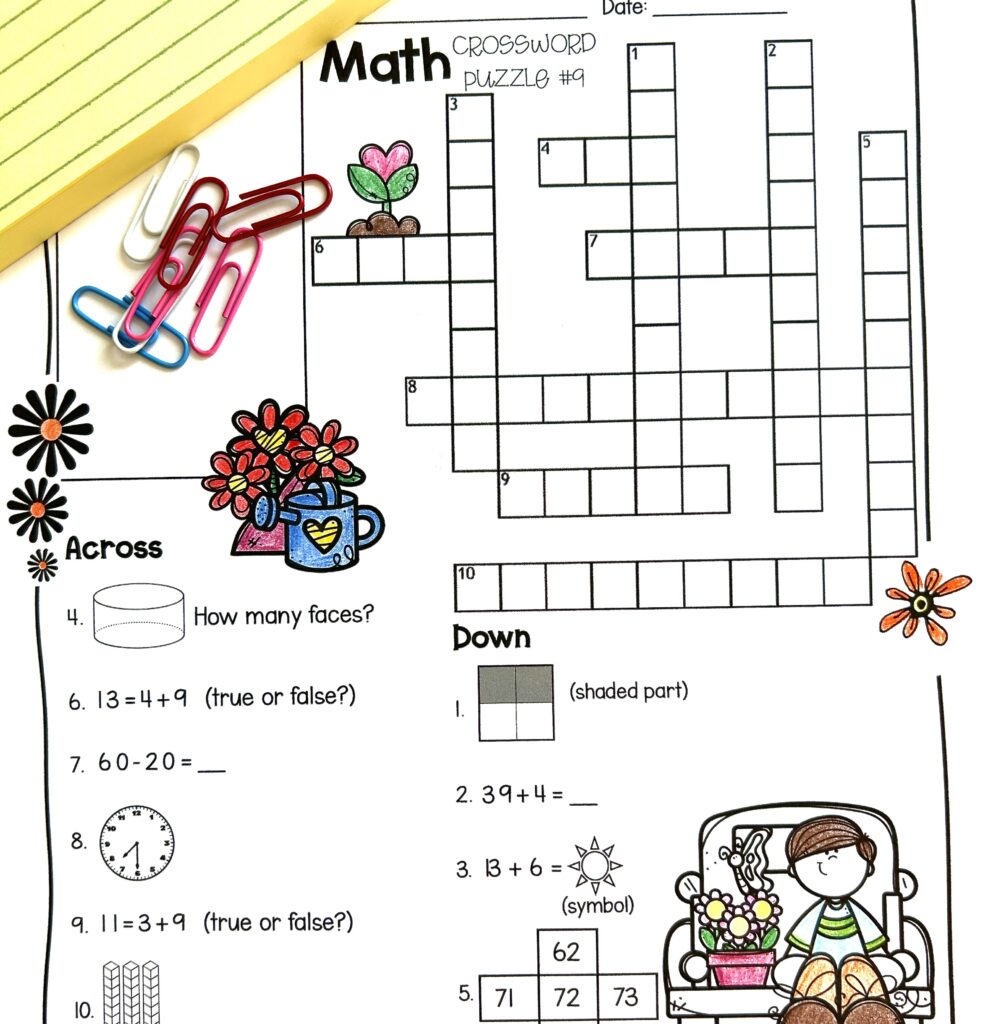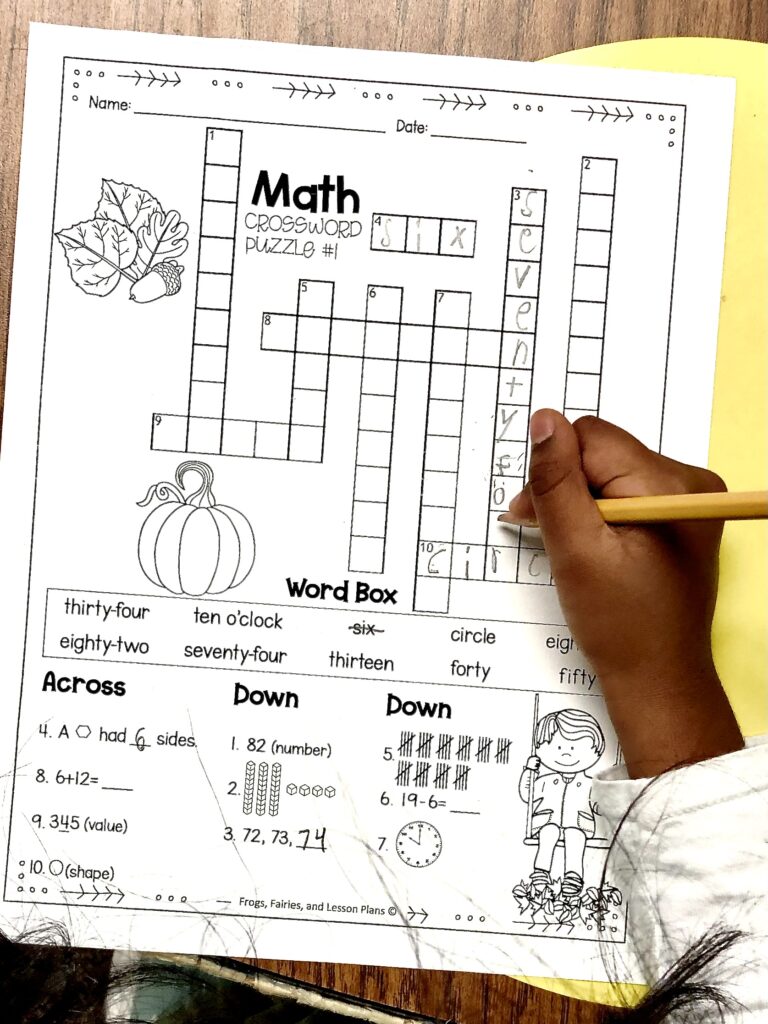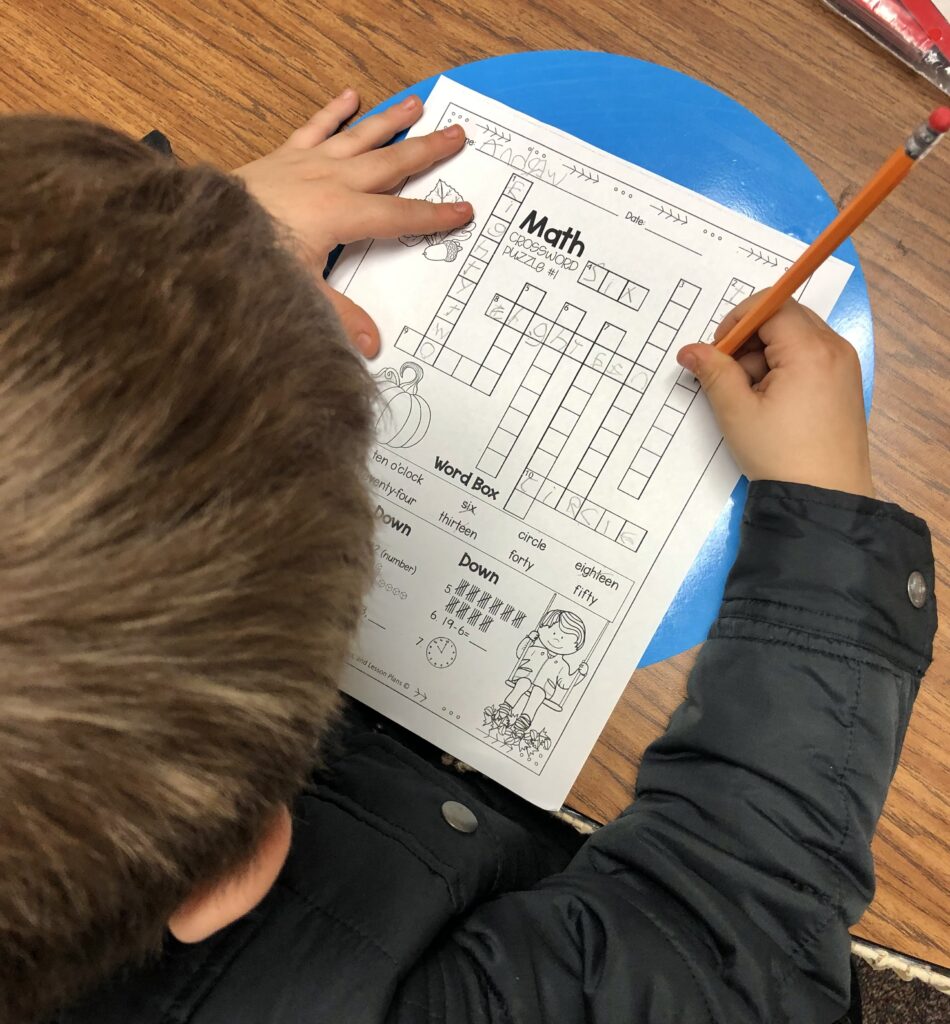Are Math Crossword Puzzles All Fun and Games?

So where do math crossword puzzles fit? We know they are fun and engaging, but are there other components that make them worth using during instructional time?
Here are some skills and practices that can improve with consistent use of educational crossword puzzles:
1. Vocabulary
We know that before a word becomes part of a child’s active vocabulary they need to read it, hear it being used, and practice using it a number of times.
Good educational crossword puzzles will repeatedly expose children to academic vocabulary increasing the likelihood of vocabulary retention and usage.
2. Writing Skills
Spelling a word 20 times to learn how to spell it is the most boring, torturous, unnatural thing ever! The natural way we learn how to spell is by paying attention to what we are writing! Crossword puzzles require paying special attention to the correct spelling of every single word or they just don’t work!

3. Reading Skills
When students read crossword puzzle clues, they must construct meaning to understand what is being asked and activate their schema to find the right answers. Without knowing, they are practicing important reading skills that can be applied to any text.
4. Logic and Critical Thinking
Solving a math crossword puzzle requires following several steps and “tricks”. Kids have to read clues and locate the proper place to write answers, they have to consider how a new word will (or will not) work when intersecting with other words in the puzzle, they have to be aware of how many letters a word has and if it matches the number of boxes they have to write in, they have to pay attention to spelling, and other crossword puzzle specifics that require using logic and critical thinking – skills we want our students to have.
5. Integration
Integrating subjects is good practice and it helps teachers “fit it all in”.
Using educational crossword puzzles is a way to integrate reading, writing, content specific vocabulary, and background knowledge.

6. Stamina and Concentration
Educational computer games with moving pieces, sounds, intricate visuals, and extrinsic rewards serve a purpose, but they don’t help our children develop the stamina and ability to focus on a single task, which are requirements for sustained reading. There is something intrinsically rewarding about completing a math crossword puzzle that motivates students to read all the clues and focus on what they are doing. This is an activity that helps build stamina and concentration.
7. Flow
Experiencing “flow”, or that feeling that nothing else matters and you didn’t see time go by, is a de-stressor. When children engage deeply in crossword puzzle solving, they are not burdening the frontal lobes of their brains with the stress that multi-tasking creates. It’s a relaxing activity.
8. Learning Alternative
Students who lack motivation, get tired easily, or simple don’t respond well to traditional worksheets, might find crossword puzzles to be an engaging alternative.
9. Later On
Although we are talking about children, the Alzheimer’s Association recommends solving crossword puzzles to slow down the development of dementia.
If you’ve never used crossword puzzles in your classroom I hope you feel like giving it a try!
RELATED POSTS: